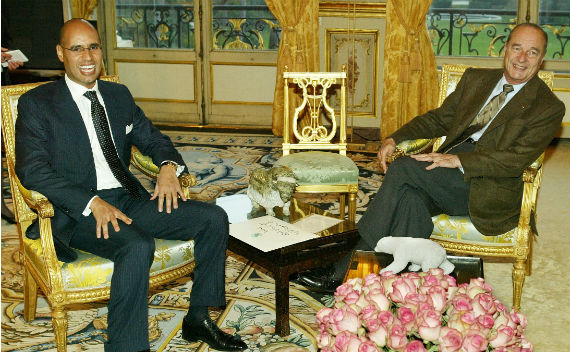The Rogue Sons
More on:

Bashar al-Assad, Gamal Mubarak, and Seif al-Islam share a number of things in common. For starters, all were groomed by their fathers to succeed them in ruling Syria, Egypt, and Libya respectively. Second, all were heralded as reformers, men who would help propel their countries, economically and politically, into the twenty-first century. Third, when protests hit their countries, each of them advocated a ruthless and violent response to the unrest. In Syria’s case, since Assad was already in power, he has been able to continue the brutal policies of his father. In Egypt’s case, Gamal’s recommendation to forcibly quell unrest did not win over the military, though he now languishes in prison facing charges of inciting police forces and organizing thugs to attack and kill Tahrir Square protesters in late January and early February. In Libya, Seif’s bloody approach earned him an International Criminal Court indictment for crimes against humanity, including murder, bombing, and shooting protesters in February.
Interestingly, each of them lived and either worked or studied in Britain. Bashar moved to London in 1992 and trained there at the Western Eye Hospital. The urbane Gamal worked as an investment banker in Bank of America’s London investment office. And Seif received a doctorate from the London School of Economics (who authored his dissertation is a subject currently under investigation).
Many observers simply assumed that because these three men were not only bilingual but bicultural—mixing easily among Western jetsetters—that they would bring home with them Western values and progressive approaches. If anything, they embodied a sense of superiority and entitlement, not equality among common citizens. Their privileged experiences in the West seem to have bred contempt and condescension for their fellow countrymen. While they may have known which fork to use at a palace dinner, it turns out that they were equally comfortable with the AK-47 and the killing and bloodshed it produces.
This is not an argument against cultural exchange or against the notion that a Western education is harmful to the elites of Arab society. One needs only to look at Bahrain’s crown prince Salman bin Hamad bin Isa al-Khalifa. The United States and British educated prince clearly tried to employ dialogue and engagement with the opposition after demonstrations erupted in Manama’s Pearl Square. But Salman lost the internal Bahraini power struggle and was pushed aside by other members of the ruling family who resorted to brutal force and violence to squelch the protests. Nonetheless, he, like the Dalton- and Sandhust- educated King Abdullah of Jordan, is attempting to import reformist principles to their respective kingdoms. In the case of Jordan, whether or not these reforms are sufficient in magnitude and rapid enough in time remain to be seen.
In this period of dramatic change in the Arab world, as we in the United States look to partner with and support genuine democrats, we must beware of automatically gravitating toward people who wear imported clothing or speak Western languages with crisp accents. Some of the most progressive people I’ve met in the Middle East don’t speak English and have never stepped foot outside their own countries. But they embrace liberal, universal values, such as equality of the sexes and equal rights for minorities. They have come to these positions from within the context of their own cultures and societies. Ultimately, for democracy to triumph in the Middle East, it must be rooted in the region, not outside. The West’s experiences with Bashar al-Assad, Gamal Mubarak, and Seif al-Islam should serve as cautionary tales that appearances can be deceiving; just because one may look like a liberal reformer doesn’t mean that he or she is one. Our most reliable partners are not necessarily going to be the people who sound and look just like us.
More on:
 Online Store
Online Store